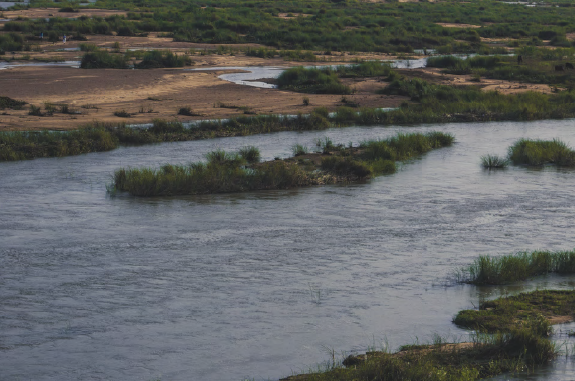By Team EverythingAboutWater
Research by Water Aid, an international Ngo focused on water, sanitation and hygiene, states that companies which invest in water, sanitation and hygiene (WASH) for their employees, their business thrives.
It a well-known fact that water is the essence of life and access to clean drinking water is the ley to a healthy and fruitful life. While we can control, what we consume, when we are at home and that even includes the water that we drink but what does one do when one steps out. Even when it comes to going to office. While the pandemic did make work from home an accepted norm in most organisations, except those engaged in providing essential services, now some sense of normalcy has started to prevail and that means offices have opened up and people have started working from office. In this context a new research by Water Aid, an international Ngo focused on water, sanitation and hygiene, states that companies which invest in water, sanitation and hygiene (WASH) for their employees, their business thrives. Productivity, punctuality, health, morale and loyalty all improve. Absenteeism and staff turnover decreases which ultimately drives business profits through increased productivity.
Facts to know.
India is the fifth largest exporter of leather goods globally and has an estimated 3,000 tanneries providing jobs for more than four million people. Bangladesh on the other hand is the world’s second – largest apparel exporter, with its ready-made garments sector accounting for 83% of the
Country’s export ear rings. Kings International Ltd tannery in Unna, India, struggled with employee absenteeism, particularly during monsoons when flooding causes contamination of water
Leading to poor hygiene and a rise in cases of diarrhoea and dysentery. The factory joined Water Aid’s project, installing toilets and handwashing points, and renovating water stations.
Hygiene messages and jingles played near the toilets, and hygiene Promotional films were screened in the common rooms. All of which encouraged employees to share with their friends and family at home, thereby improving community – level Hygiene awareness.
The study.
The new data, released in two reports titled Boosting business: why investing in water, sanitation and hygiene pays off, supported by HSBC, was done in the apparel and leather industries across
Six workplaces in India and Bangladesh over a two-year period. The reports include projections for the next ten years. It is for the first time that the impacts from WASH investments on both employees and businesses has been documented and analysed, and where the return on investment (ROI) is so clear. With trends showing that consumers increasingly care how their clothing is made and seek out products and brands that prioritize employee welfare, health of employees should be
On top of any business leaders’ mind, and investments in WASH should become a core part of any companies’ economic, social and governance strategies and action. The key to success is to deliver these basic essentials in workplaces, employees’ communities and throughout business supply chains.
Key Findings.
Investments in WASH paved the way for a host of business benefits and trends both for employees and the management. The findings are mentioned below.
IN CASE OF INDIA
As mentioned earlier, among the positive signs seen in India, were fall in absenteeism which fell by 29% and 83% employees stated that they had improved their behaviour of washing hands. Further, employees’ access to drinking water rose by 30%, and to handwashing stations by 13%. The availability of toilets at home increased by 10 percentage points (from 70% to 80%).
IN CASE OF BANGLADESH
Even in case of Bangladesh, the benefits were very similar to as seen in India. In Bangladesh too absenteeism fell by 15%, punctuality improved by 5%, and attrition decreased by 2%. In employee
Communities, almost a third of the households (31%) now have safely managed water, and 26% of households now have decent toilets, compared to zero access for both of these before
The project. A climate resilient rainwater harvester installed by Fakir Fashion (one of the
Ready-made garment factories, in Bangladesh) provided significant environmental benefits and cost savings in terms of water supply and treatment.
Impact on ROI.
Productivity is the most influential and important indicators contributing to ROI across the six workplaces. In Bangladesh, productivity improved across the three factories, resulting in
The biggest business benefit an estimated $7.8 million (738 million BDT) over ten years with a continued investment in WASH. Assuming a continued investment in WASH over a ten-year period, the factories in Bangladesh showed an estimated Overall ROI of USD 6.79 for every USD 1 Invested (ranging from USD 9 to USD 30); in India, the figure showed an overall ROI of USD 2 for every USD 1 invested (ranging from USD 2 to USD 8). While the ROI for each of the six workplaces varied, depending on a range of factors such as the impact of COVID-19, product value and previous
WASH standards the benefits for both employees and companies are staggeringly clear.
Impact on the ground.
Staff across all six workplaces were pleased with the impact of the WASH investments, with 100% of employees across the three ready-made garment factories saying that the facilities had Brought positive changes, and 83% thought the project had significantly contributed to better health in their communities. The study by Water Aid clearly shows that proper investments towards providing proper water and sanitation for employees is a win-win situation for the





